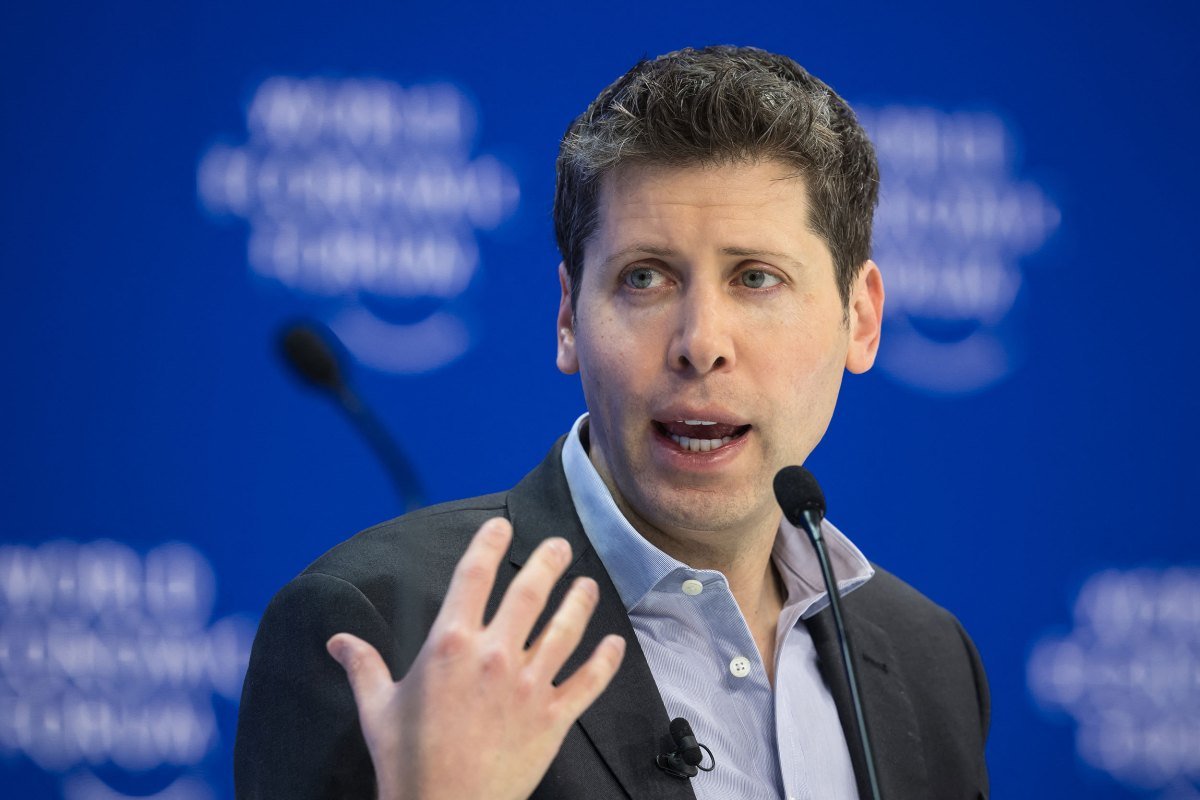<div>
<h2>OpenAI Clarifies its Stance on Robinhood's "OpenAI Tokens"</h2>
<p id="speakable-summary" class="wp-block-paragraph">OpenAI has explicitly stated that Robinhood's sale of "OpenAI tokens" does not grant consumers any equity in the company, highlighting a lack of endorsement or involvement in this initiative.</p>
<h3>OpenAI Disavows Any Association with Token Sale</h3>
<p class="wp-block-paragraph">In a recent announcement on X, OpenAI clarified, "These 'OpenAI tokens' are not OpenAI equity. We did not partner with Robinhood, were not involved in this, and do not endorse it. Any transfer of OpenAI equity requires our approval—we did not approve any transfer. Please be careful."</p>
<figure class="wp-block-embed is-type-rich is-provider-twitter wp-block-embed-twitter">
<div class="wp-block-embed__wrapper">
<blockquote class="twitter-tweet" data-width="500" data-dnt="true">
<p lang="en" dir="ltr">These “OpenAI tokens” are not OpenAI equity. We did not partner with Robinhood, were not involved in this, and do not endorse it. Any transfer of OpenAI equity requires our approval—we did not approve any transfer. Please be careful.</p>
<p>— OpenAI Newsroom (@OpenAINewsroom) <a target="_blank" rel="nofollow" href="https://twitter.com/OpenAINewsroom/status/1940502391037874606?ref_src=twsrc%5Etfw">July 2, 2025</a></p>
</blockquote>
</div>
</figure>
<h3>Robinhood’s Announcement Sparks Controversy</h3>
<p class="wp-block-paragraph">The statement from OpenAI comes in response to Robinhood's recent launch of tokenized shares for OpenAI, SpaceX, and other private entities in the European Union.</p>
<h3>The Pretense of Equity: Understanding Tokenized Shares</h3>
<p class="wp-block-paragraph">Robinhood claims this initiative aims to allow retail investors to gain exposure to private company equity via blockchain. However, shares in private firms like OpenAI and SpaceX remain unavailable to the public, targeting specific investors only.</p>
<h3>Clarification from Robinhood Amidst Backlash</h3>
<p class="wp-block-paragraph">Following OpenAI's disavowal, Robinhood spokesperson Rouky Diallo explained that the OpenAI tokens are part of a "limited" giveaway designed to provide indirect exposure to investors through Robinhood's ownership stake in a special purpose vehicle (SPV).</p>
<h3>Decoding SPVs and Tokenized Contracts</h3>
<p class="wp-block-paragraph">This insinuates that while Robinhood may hold shares in an SPV that encompasses a number of OpenAI shares, the tokens themselves do not offer direct ownership. They essentially represent ownership in an entity owning the shares, and their pricing can diverge from actual stock prices.</p>
<p class="wp-block-paragraph">In its <a target="_blank" rel="nofollow" href="https://robinhood.com/eu/en/support/articles/about-stock-tokens/">help center</a>, Robinhood emphasizes that purchasing stock tokens means acquiring tokenized contracts—recorded on a blockchain—rather than the actual stocks.</p>
<h3>CEO Vlad Tenev's Vision for Future Investments</h3>
<p class="wp-block-paragraph">Robinhood CEO Vlad Tenev described the tokens as a new avenue for retail investors to access private assets, stating, "While it is true that they aren’t technically ‘equity,’ the tokens effectively give retail investors exposure to these private assets.” He also noted the growing interest from private companies willing to join in this tokenization effort.</p>
<h3>The Implications of Tokenization for Private Companies</h3>
<p class="wp-block-paragraph">OpenAI has chosen not to further comment on this situation, while Robinhood remains tight-lipped on additional queries regarding its SPV structure.</p>
<p class="wp-block-paragraph">Historically, private firms have opposed actions that could impact equity valuations. For example, Figure AI recently issued cease-and-desist letters to brokers promoting its stock in secondary markets, demonstrating a consistent trend among startups protecting their valuation integrity.</p>
</div>
<script async src="//platform.twitter.com/widgets.js" charset="utf-8"></script>This revised article features SEO-optimized headlines while maintaining clarity and engagement.
Sure! Here are five FAQs regarding OpenAI’s condemnation of Robinhood’s "OpenAI tokens":
FAQ 1: What are OpenAI tokens as mentioned in the context of Robinhood?
Answer: OpenAI tokens refer to a type of digital asset that may be associated with or misrepresented as being related to OpenAI. These tokens are not officially endorsed or created by OpenAI and may mislead investors.
FAQ 2: Why did OpenAI condemn Robinhood’s OpenAI tokens?
Answer: OpenAI condemned these tokens because they do not represent any legitimate partnership or endorsement. The concern is that they could mislead users and investors into thinking they are investing in a product or service directly associated with OpenAI, while in fact, they are not.
FAQ 3: What should investors know about these tokens?
Answer: Investors should be cautious and avoid purchasing these tokens, as they are not backed or regulated by OpenAI. Engaging with funds or tokens that claim association with OpenAI without official status poses significant financial risks.
FAQ 4: How can consumers verify the legitimacy of cryptocurrency associated with OpenAI?
Answer: Consumers should always check official announcements from OpenAI on their website or verified social media channels. Additionally, they can look for press releases or news articles from reputable sources to ascertain the authenticity of any related tokens.
FAQ 5: What actions can individuals take if they have already invested in Robinhood’s OpenAI tokens?
Answer: Individuals should evaluate their investment and consider consulting a financial advisor or legal professional. They may also report any fraudulent activity to appropriate regulatory bodies to seek guidance or potential recourse.

